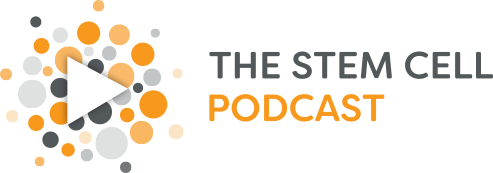
Podcast: Play in new window
Guest:
Dr. Eggan is a Professor in the Department of Stem Cell and Regenerative Biology, Harvard University. On this show he joins us, along with a post-doctoral fellow from his lab, Dr. Michael Wells, to discuss their latest publication on investigating mechanisms of infection in Zika virus.
Resources and Links
Microcephaly Cases Surge in Colombia following Rise in Zika Infections – Colombia saw a surge on 2016 in babies with microcephaly — more than four times the number reported in the previous year caused by Zika virus infections.
Having an Extra Chromosome Slows Cancer Cell Growth – This article reveals that smaller tumors, less cancer-driving proteins are seen with cells with an extra copy of a chromosome — known as trisomic cells.
Gut Microbes Mix May Regulate Motor Deficits in Parkinson’s – Gut impulse signals from gut microbes can activate immune cells called microglia in the mouse brain, causing inflammation that’s characteristic of Parkinson’s disease.
Solar Panels Are Almost Truly Green – This article reports that solar panels are about to break even on their energy usage and greenhouse gas emissions.
Telomere Balance between Elongation and Trimming in Stem Cells – Researchers report that telomere length is determined by the balance between telomere elongation, which is mediated by telomerase, and telomere trimming, which is controlled by XRCC3 and Nbs1, homologous recombination proteins that generate single-stranded C-rich telomeric DNA and double-stranded telomeric circular DNA, respectively.
Long-Term Self-Renewing Human Epicardial Cells Generated from Pluripotent Stem Cells under Defined Xeno-Free Conditions – Scientists show that the temporal modulation of canonical Wnt signaling is sufficient for epicardial induction from six different human pluripotent stem cell lines, including a WT1-2A-eGFP knock-in reporter line, under chemically defined, xeno-free conditions.
Development of a Rapid Screen for the Endodermal Differentiation Potential of Human Pluripotent Stem Cell Lines – Researchers developed a rapid small molecule based screen to assess the endodermal potential of human pluripotent stem cells, based solely on definitive endoderm morphology.
Genetic Ablation of AXL Does Not Protect Human Neural Progenitor Cells and Cerebral Organoids from Zika Virus Infection – Dr. Kevin Eggan and his team of researchers show that genetic ablation of AXL has no effect on Zika virus (ZIKV) entry or ZIKV-mediated cell death in human induced pluripotent stem cell-derived neural progenitor cells or cerebral organoids.
Photo Reference: Courtesy of Dr. Kevin Eggan

